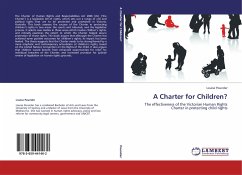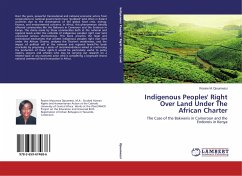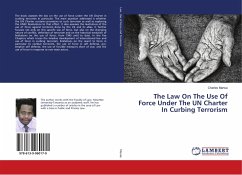The Charter of Human Rights and Responsibilities Act 2006 (Vic) ('the Charter') is a legislative bill of rights, which sets out a range of civil and political rights that are to be protected and promoted in Victoria, Australia. This book assesses the success of the Charter in protecting children's rights in two areas: the courts and tribunals, and the legislative process. It selects case studies in these areas which involve children's rights, and critically examines the extent to which the Charter helped secure protection of those rights. The book argues that although the Charter has achieved some positive outcomes for children's rights, its impact has been limited. The thesis suggests that the Charter needs to be strengthened by a more emphatic and contemporary articulation of children's rights, based on the United Nations Convention on the Rights of the Child. It also argues that children would benefit from enhanced opportunities for relief for individual breaches of the Charter, and increased provision for judicial review of legislation on human rights grounds.
Bitte wählen Sie Ihr Anliegen aus.
Rechnungen
Retourenschein anfordern
Bestellstatus
Storno








